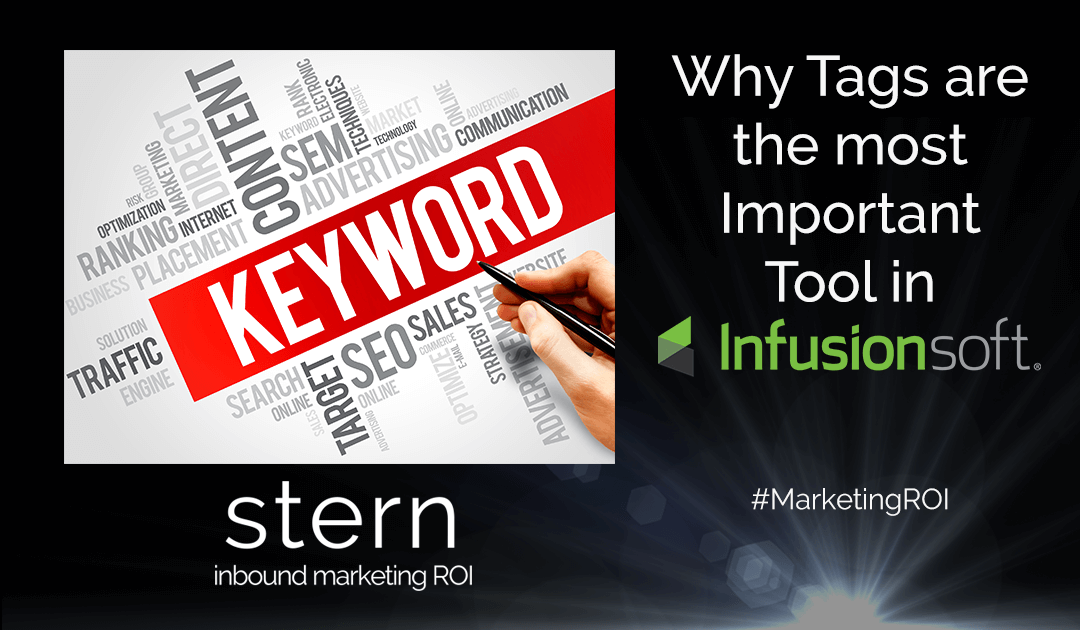Infusionsoft is one of the world’s leading software tools for marketing automation.
Lots of small to mid-size companies use Infusionsoft to increase the visibility of their business while dramatically bolstering the reach, timeliness, and efficiency of their inbound marketing campaigns.
AND YET . . .
We at Stern Inbound Marketing have found that many users don’t properly leverage one of the program’s most valuable functions: tags.
The choice to use tags in Infusionsoft boils down to one simple question: do you want your content and products to be found by search engines or not?
Most fledgling marketers don’t understand that search engines scan each webpage for three vital pieces of information: the page’s Title, Description, and Keywords. Collectively, these pieces of information are known as meta tags, but they hold different weights in search engine optimization (SEO).
Let’s cover each type of tag separately.
TITLE TAG
The Title of page is terrifically important since it’s the first element a search engine reads before electing to plunge a bit deeper. On the human side, it’s also the first thing your potential customers read . . . and we don’t have to tell you how important that is.
Creating specific Titles for your pages increases their relevancy to search engines while attracting more Internet traffic. When potential customers search for a keyword or phrase that happens to be in your Title, the corresponding text of your Title actually shows up in bold on the customer’s Search Engine Results Page (SERP)!
Keep in mind that search engines limit Title tags to 70 characters. Anything beyond that will be truncated so confine yourself to within this limit to maximize your exposure. And it should go without saying that you should never use the same Title for multiple pages.
DESCRIPTION TAG
Description tags are also important since they too get displayed in SERPs. Character limits for Descriptions max out at 160. Any characters over that will be truncated, so work within this confine.
In the same manner as Titles, your Descriptions should avoid using duplicate terms. If you’re having a tough time coming up with a Description leave it blank. Google will create something to fill the gap and usually does so with a remarkable degree of accuracy.
KEYWORDS
Contrary to popular belief, keywords are NOT visible on SERPs and do not provide meaningful value to Google. That being said, a few search engines still seem to take them into consideration, likely because it requires very little effort to scan for them and they can sometimes be very informative.
Any keywords you use should include the ones you included in your Title tags plus one or two others. HOWEVER! Do not exceed five keywords per page. If you do, most search engines are likely to mark your page as spam, which won’t help grow your business at all.
As with Descriptions, if you can’t think of a few good, relevant keywords to include for your page, we urge you: Don’t Sweat It. Forget It!
Also as with Descriptions, Google will fill in these blanks for you, and often does so with a high degree of accuracy.

